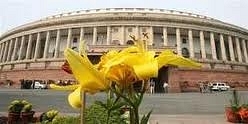
Signature Campaign against draconian provisions of Communal Violence Bill
Thanks to the initiative of our fellow CRI commentator Manohar Seetharam an online petition against the draconian provisions of Communal Violence bill is now up and running at http://www.petitiononline.com/cvb_nac/ Request all our readers to participate in the campaign. This shocking piece of communally bigoted legislation needs to be oppossed tooth and nail by all right thinking citizenry of the country
Prevention of Communal and Targeted Violence(Access to Justice and Reparations),2011
To : Smt. Sonia Gandhi, Chairperson, National Advisory Council
You must be quite aware of the ‘Prevention Of Communal and Targetted Violence (Access To Justice and Reparations)’ bill, drafted by the National Advisory Council (NAC), which has been put up in the public domain for citizen’s submissions and feedback. Having carefully studied the bill and discussed and deliberated the pros and cons of the draft with the various members of the civil society we have the following objections and suggestions to the bill in it’s current shape.
In Chapter 1, section 3.a, the definition provided for the term “group” remains limited only to the few sections of the societies, like the religious and linguistic minorities. This definition has the effect of placing the vast majority of the society outside the purview and protection of this bill. Also, this provision is in violation of the fundamental right to Equality (Art 14) enshrined in our constitution. Hence we demand that this definition be modified to be more inclusive and cover all sections of the society without any discrimination and bias.
In Chapter 2, section 8, the all encompasing definition of “hate propoganda” might have many hazardous side-effects, like curtailing an individual’s freedom of expression or severe self censorship by the media houses. These actions will inevitably come at the cost of healthy criticism and thought that is much needed in our societies and nation at large. Therefore, we urge that unless a direct causal relationship is established between the material and the act of violence the act to publishing or communicating the material must not be labelled as “hate propoganda”.
In Chapter 3, section 20, the bill defines an act of communal and targetted violence to contitute an “internal disturbance” under Art 355 and empowers the Central Government to take further action. The honourable Supreme court in the S.R.Bommai Vs Union of India case has ruled that the term “internal disturbance” in Art 355 must be deemed to be interpreted as “armed rebellion” in the context of imposing an emergency. Federalism being one of the founding stones of our national polity we demand that the NAC clarify this point in it’s draft and bring it in harmony with the rules and procedures already laid out by the Supreme Court. This would avoid any confrontation between the Union and the States on this matter on a later date and prevent the law from being misused for political objectives. It would be wise to do away with this unnecessary detail altogether.
In Chapter 4, section 23.2.b, the proposal to exclude individuals who have exhibited bias against any group is not sufficiently qualified and vague. It can be variously interpreted to keep many capable individuals away from the proposed authority by vested interests. Hence we suggest that this provision be completely dropped.
In Chapter 4, section 25.2, the Members of the Parliament who play an important role in appointing the Chairperson, Vice-Chairperson and the Members do not play any role in their removal process. Parliament as a body has the power to introduce removal proceedings against many officers holding Constitutional posts. To ensure that the representatives of the people have the power to remove the members from the authority the Parliament must be allowed to initiate proceedings against the members of the proposed authority.
In Chapter 6, section 72, this provision provides for compulsory judicial inquiry into every act of communal violence apart from the police inquiry. It is common knowledge how stretched our Judiciary is and having two inquiries into every act of violation might not be the best way of spendign these scarce resources. Therefore we request that more thought be put into this proposal and it be re-examined.
In Chapter 6, section74.1 and section 74.2, these both provisions provide excellent opportunities to be misuse the law and target innocent individuals instead of nabbing the real cuplrits. These provisions, turn the assumption of innocence, which is the norm, on it’s head. The section 8, of the draft bill which defines “hate propoganda” is in itself very vague (as already pointed out). To assume a person indulging in such as act is guilty would tantamount to rendering the accused helpless without giving him a chance to defense. These draconian provisions would indeed help achieve better conviction rates but do not serve the cause of justice. Therefore we demand that these provisions be dropped.
These are some of the important concerns we have about the current draft relesed by the NAC. We hope that the NAC will consider all our demands favourably and incorporate the changes to their next version. We also suggest that the NAC engage the various cross-sections of the society by holding consultations. This would ensure that the sections of the society and opinion that are currently unrepresented in the NAC would not be rendered voiceless.
We hope the NAC will respect the opinion of the citizens of this country and accomodate thier suggestions in the future drafts of the bill.